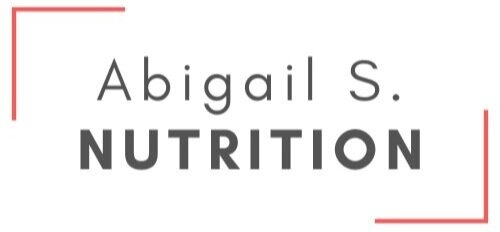Nutrition and the Immune System
Want to boost your immune-system? Time to sort fact from fiction.
Immune-boosting, superfoods and ‘food as medicine’ are popular topics right now, but there’s a lot of misinformation around what exactly your immune system does, and how food can support a healthy immune system but - can you boost your immune system?
There’s always a number of exaggerated claims (or just straight-forward made-up claims!) about the impact food can have on health doing the rounds. This general level of misinformation I work to combat everyday, however, with the increase in cases of COVID19, there has been a surge of ‘immune boosting’ ideas that will prevent/cure Coronavirus.
How do you boost your immune system?
Our Immune System is extremely complicated but the details of that aren’t really needed here so let’s keep things simple (more info can be found in the references at the bottom if you fancy getting stuck in). Essentially, what is important to know is that it exists to eliminate harmful things (think bacteria & viruses but also infection and even cancer). Our immune system changes over time, and as we age some of the responses can be less effective (a reason that certain vaccinations are preferentially given to the elderly).
Those with suppressed immune systems (like transplant patients), are more susceptible to infections and cancers. However, ‘boosting’ their immune system would lead to a rejection of the transplant - not a good idea!
Innate and adaptive immunity
There are two types of immune response, innate and adaptive. Innate is kind of a throw everything at a problem and see what sticks, but as it isn’t specific it can be less effective. This innate response includes:
Physiological barriers (skin, mucus, stomach acid, fever)
Inflammation (not always a bad word! Inflammation is part of normal bodily function)
Adaptive is able to remember a pathogen and repeat an effective and rapid response (hellooooo vaccinations), but if it doesn’t recognise the problem it has limited tools available immediately.
Can you boost your immune system?
Usually at the start of autumn, there’s an increase in content around ‘boosting’ immune systems, and how to prevent colds and flus. The reality is that you can’t boost your immune system with food. It either functions properly, or it doesn’t. There’s no upgrade, no VIP, no platinum lounge - no matter how many IG accounts say otherwise. It needs a steady supply of things to work, but it doesn’t have a hyperdrive function. No warp speed if you give it açai powder, sorry 😬
In cases where immune systems work overtime the body can’t always distinguish between ‘self’ and ‘alien’. These are auto-immune diseases such as arthritis, lupus and coeliac disease (it’s not an allergy!), so perhaps ‘boosting’ isn’t a desired outcome after all!
Where does nutrition come in?
The immune system needs adequate nutrition as the immune response can be compromised when nutrition is suboptimal. This isn’t just specific nutrients but energy demands too, as the body requires energy to combat illness. Carbs, proteins and fats have all shown to play a role in immune function.
Immunocompetence depends on the presence of many micronutrients (independent of age) and deficiencies in some trace elements & vitamins are all associated with impaired immune function.
These nutrients don’t ‘boost’ your immune system, rather they provide the essentials that are needed in order for it to function.
Please note - more does NOT always equal better. Somethings can be toxic in large doses, because the dose makes the poison. Please follow advice in your country for recommended daily amounts.
Nutrients that Support Immune Function
Iron
Copper
Selenium
Zinc
Folic Acid
Vitamins A, B6, B12, C, D, E
Things that don’t support Immune Function
Superfoods (not a thing)
Immune boosters (not a thing)
Specific diets (no evidence)
Ketone supplements (no evidence)
Bulk buying toilet roll & pasta
None of this will prevent you catching a virus, but it might help you fight it off. You can’t boost your immune system, but you can provide it with adequate nutrition to function. That doesn’t mean you have to take a thousand supplements, powders or take up keto. What it does mean is that a varied diet with plenty of fruit, veg, carbs, proteins and fats *should* provide you with everything you need. You’re probably doing that already 🤷🏼♀️
What else supports my immune system?
Plenty of sleep, not too much alcohol, regular exercise & not smoking are all associated with better immune systems. Maintain good hygiene, wash hands regularly, and well. Vaccinate, vaccinate, vaccinate.
Coronavirus
Specific to COVID-19 - sneeze and cough into tissues and dispose, and thoroughly wash your hands* but also please do this with any cough, cold or flu. There are vulnerable folx out there who might not have the same antibodies.
*advice is changing daily, this is accurate as of today, 10th March 2020.
This and all other content is intended as information only and does not constitute, nor is a substitute for, individual advice from your Healthcare Professional
References:
Carr, A.C.; Maggini, S. Vitamin C and Immune Function. Nutrients 2017, 9, 1211.
Childs, C.E.; Calder, P.C.; Miles, E.A. Diet and Immune Function. Nutrients 2019, 11, 1933.
Kebena, K.S, ; McMurray, D.N. Nutrition and the immune system: a review of nutrient-nutrient interactions. J Am Diet Assoc. 1996 Nov;96(11):1156-64; quiz 1165-6
Kent L. Erickson, Edward A. Medina, Neil E. Hubbard, Micronutrients and Innate Immunity, The Journal of Infectious Diseases, Volume 182, Issue Supplement_1, September 2000, Pages S5–S10,
Maggini, S.; Pierre, A.; Calder, P.C. Immune Function and Micronutrient Requirements Change over the Life Course. Nutrients 2018, 10, 1531.

